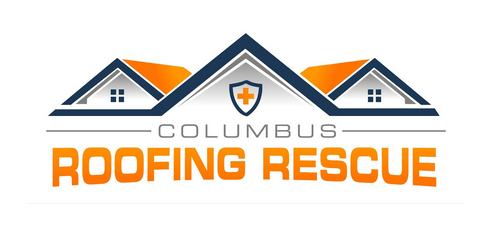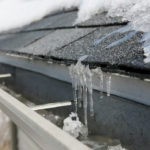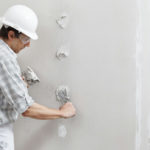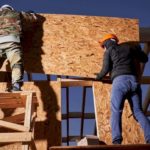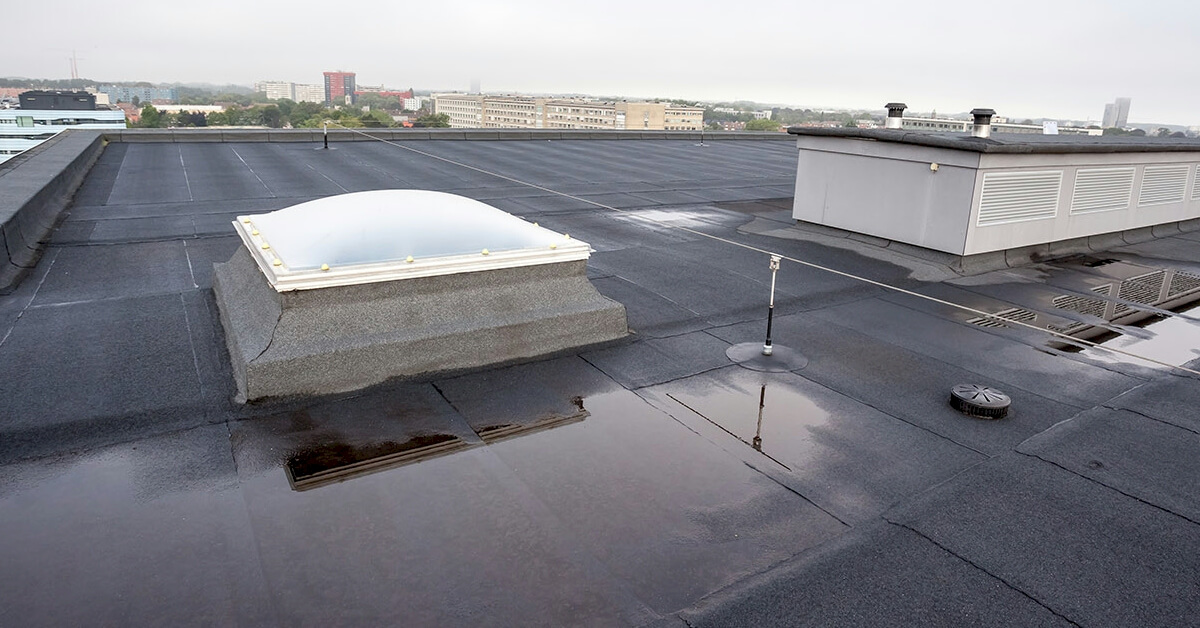
How To Fix A Leak On A Flat Roof
A flat roof can be a good choice for commercial and residential buildings, but it comes with its own challenges. One of the biggest things people face with a flat roof is leaks. A leaky roof is a major headache, causing damage to your property and disrupting your daily routine. Fortunately, fixing a flat roof leak can be a simple process with the correct tools and knowledge. In this article, we’ll look at some common causes of flat roof leaks and how to fix them like a pro. Whether you’re a DIY enthusiast or a professional contractor, these tips and tricks will help you keep your flat roof in great condition and prevent leaks from ruining your day. Let’s get started and learn how to fix that pesky flat roof leak once and for all.
Common causes of flat roof leaks
Flat roofs are known to leak due to their design. Unlike sloped roofs, flat roofs have a low pitch that can lead to water pooling and eventually causing damage. Some common causes of flat roof leaks include:
Age
Flat roofs have a shorter lifespan than sloped roofs. Over time, the roofing materials can break down, leading to cracks and leaks. If your flat roof is over ten years old, it could be time to think about a replacement.
Poor installation
If your flat roof was not installed properly, it can lead to leaks. Poor installation can cause gaps in the roofing materials, allowing water to seep in.
Weather damage
Extreme weather, like heavy rain and snow, can cause damage to your flat roof. The heavy weight of the snow can cause the roof to cave in, while strong winds can lift the roofing materials and expose the roof to water damage.
Signs of a flat roof leak
Detecting a flat roof leak early will save you money and time in the long term. Some signs of a flat roof leak include:
Water stains
If you notice water stains on your ceiling or walls, it may indicate a flat roof leak. Water stains can be yellow, brown, or gray and are often accompanied by a musty smell.
Puddles
If you happen to notice puddles of water on your flat roof, it may be a sign of a leak. Puddles can lead to water damage and eventually cause the roof to cave in.
Cracks and holes
Cracks and holes in the roofing materials will allow water to get in and cause water damage to your property.
How to fix a flat roof leak – DIY or hire a professional?

Fixing a flat roof leak can be a DIY project or require a professional contractor. If you have any experience working with roofing materials and feel confident in your abilities, you can tackle the project yourself. However, if you’re unsure how to fix a flat roof leak or don’t have the necessary roofing tools, it may be best to hire a professional.
Materials needed for fixing a flat roof leak
If you decide to fix a flat roof leak yourself, you’ll need the following materials:
Roofing materials
You’ll need to purchase roofing materials such as rubber, PVC, or TPO to repair the leak.
Roofing adhesive
Roofing adhesive will be used to seal any gaps in the roofing materials.
Roofing tape
Roofing tape can be used to seal any cracks or holes in the roofing materials.
Roofing primer
Roofing primer will be used to prepare the surface of the roofing materials for the adhesive.
A step-by-step guide to fixing a flat roof leak
Here’s a step-by-step guide to fixing a flat roof leak:
Step 1: Locate the leak
The very first step would be to locate the leak. Look for water stains on your walls or ceiling and trace them back to the source.
Step 2: Clean the area
Thoroughly clean the area around the leak with a broom or brush to remove debris.
Step 3: Apply roofing primer
Apply roofing primer to the surface of the roofing materials around the leak. Allow the primer to dry completely.
Step 4: Apply roofing adhesive
Apply roofing adhesive to the surface of the roofing materials around the leak. Use a putty knife to spread the adhesive evenly.

Step 5: Apply roofing tape
Apply roofing tape to any cracks or holes in the roofing materials. Use a putty knife to smooth out any wrinkles in the tape.
Step 6: Allow the adhesive to dry
Always allow the adhesive to dry completely, according to the instructions.
Step 7: Test for leaks
Test for leaks by spraying water on the repaired area. If there are no leaks, the repair is complete.
Tips for preventing future flat roof leaks
Preventing future flat roof leaks is essential to maintaining the integrity of your roof. Here are some tips for preventing future flat roof leaks:
Regular maintenance
Regular maintenance can help prevent flat roof leaks. Inspect your flat roof regularly for any signs of damage and repair any issues immediately.
Keep the roof clean
Keeping the roof clean can prevent debris from accumulating and causing damage to the roofing materials.
Proper drainage
Proper drainage can prevent water from pooling on your flat roof. Make sure your downspouts and gutters are clear and functioning properly.
When to replace your flat roof
If your flat roof is over ten years old and experiencing frequent leaks, it may be time to consider a replacement. A new flat roof can provide better protection for your property and save you money in the long run.
Benefits of regular flat roof maintenance
Regular flat roof maintenance can provide several benefits, including:
Prevention of leaks
Regular maintenance can prevent flat roof leaks and save you money in the long run.
Extended lifespan
Regular maintenance on your roof will extend the lifespan, saving you money on a replacement.
Improved energy efficiency
A properly maintained flat roof can improve the energy efficiency of your property, reducing your energy bills.
Conclusion
A flat roof leak can be a major headache, but fixing it with the right tools and knowledge can be a relatively simple process. Whether you tackle the project yourself or hire a professional, taking action as soon as possible is important to prevent further damage. Regular maintenance and proper drainage can help prevent future flat roof leaks and extend the lifespan of your roof. Don’t let a flat roof leak ruin your day – fix it like a pro, and enjoy the benefits of a leak-free roof!
